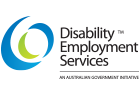atWork Australia offers advice on how to support employees with invisible disability
The fear of discrimination is potentially forcing those with invisible disability to hide their condition from prospective employers, according to leading Disability Employment Services experts. This can prevent businesses from supporting these employees and ensuring they are a productive part of their teams.
“An invisible disability is something that is not immediately apparent and can span across physical, mental or neurological conditions,” says Debbie Brooks, National Diversity Employer Manager from leading Disability Employment Services (DES) provider atWork Australia. “For example, people with visual or auditory disability who do not wear glasses or hearing aids will not appear to have physical challenges, yet this can limit a person’s movements or activities. What’s more, the very fact that these sorts of disability are deemed ‘hidden’ can lead to a wealth of misunderstandings, false perceptions and judgements 1 ,” she adds.
Disability discrimination accounts for the highest volume of complaints to the Australian Human Rights Commission annually 2 . “Due to the fear of discrimination and social stigma, many prospective employees who have a hidden disability, may choose not to disclose it when applying for new jobs,” says Debbie.
There are no legal obligations to disclose a disability, however, to make potential employers aware of any adjustments needed, it is crucial for those with invisible conditions to discuss their needs upfront. With this in mind, atWork Australia is encouraging potential employees with invisible conditions to disclose at the application stage. “Deciding whether to disclose your disability is not a decision taken lightly,” says one of atWork Australia’s client success stories, Amelia Cox, who lives with the muscle wasting condition, Limb Girdle Muscular Dystrophy. “Talking about invisible conditions in interviews shouldn’t be a negative consideration for managers when selecting the best candidate, but rather help the employer to better facilitate your transition into their team,” continues Amelia.
While many businesses may already employ people with invisible disability, others may be reluctant due to a number of factors. Here, Amelia and atWork Australia discuss the factors to make disclosing or accommodating invisible disability work for both employers and employees.
A safer workplace long term
“An inclusive environment can be achieved through training, workplace culture management, HR policies and an ongoing dialogue between employees and employers,” says Debbie.
“We urge employees with invisible disabilities to be constructively open about opportunities to better integrate them into the workplace, and to work with their employers to find productive solutions,” she adds. “We also encourage employers to offer a periodical check in with the employee member, as well as training the wider team in any adjustments that are required to accommodate their new colleague.”
The right support
Businesses and employees can greatly benefit from expert specialists who can help to coach both parties from the interview process, through to the workplace and beyond explains Amelia: “I was looking for work for around two months, and although I could advocate for myself, it was really beneficial to have someone like atWork Australia backing me.”
All of atWork Australia’s clients are given their own Job Coach who provides the appropriate resources and helps explain to employers what people’s conditions entail. “Having an expert on disability employment was invaluable for myself and my bosses in securing our working relationship as they understand where everyone is coming from.” she adds.
Start from day one
“By having an open and frank conversation about invisible disabilities with possible employers upfront, the social stigma around the topic can be stripped back straight away,” explains Debbie. “This leaves employers focused on the task in hand – to ensure an employee’s strengths are maximised in a role, and to deliver the best results for the business.”
If an employer is made aware of a staff member’s invisible disability from the start, it enables the business to effectively manage the person and their subsequent team. “It also results in not setting those with an invisible disability up for failure,” says Debbie.
“If you can explain to your employer, how your condition has impacted your life in positive, and maybe not so positive ways, they are able to get a realistic understanding of you and how you would flourish in that role,” adds Amelia.
Education is key
“If an employee or co-worker feels comfortable enough to disclose their disability, it’s important to learn about it and have a strong understanding of where they are coming from,” Debbie says.
What’s more, with one in five Australian’s currently living with mental health conditions, 20% of our workforce will potentially be living with an invisible disability. This figure is likely to increase further as a result of uncertainty and anxiety during the COVID-19 pandemic. It is clear that businesses need to fully understand employees and support them, now more than ever.
“Becoming knowledgeable about a person’s disability or health condition allows for more collaborative ways of working and the creation of a workplace that is accessible to all. It also provides an open discussion about how the person with the disability prefers to work, and whether there are any practices that have been successful for them in the past,” she adds.
By creating a space where all employees have equal access to employment, Australian businesses can access the full talent pool with benefits to productivity, retention and the bottom line.
To find out more about Amelia’s story as an atWork Australia DES client, please click here. Having recently disclosed her condition during the interview process for her current role as Junior Administrator, Amelia talks though her experience with invisible disability and her success at finding the right job with the right employer.
atWork Australia are committed to providing truly excellent employment support services, making a real difference to people’s lives and helping employers find truly great people for their business. Please call us on 1300 080 856 or click here for more information.
[1] https://invisibledisabilities.org/what-is-an-invisible-disability/
[2] https://www.humanrights.gov.au/sites/default/files/2019-10/AHRC_AR_2018-19_Stats_Tables_%28Final%29.pdf


